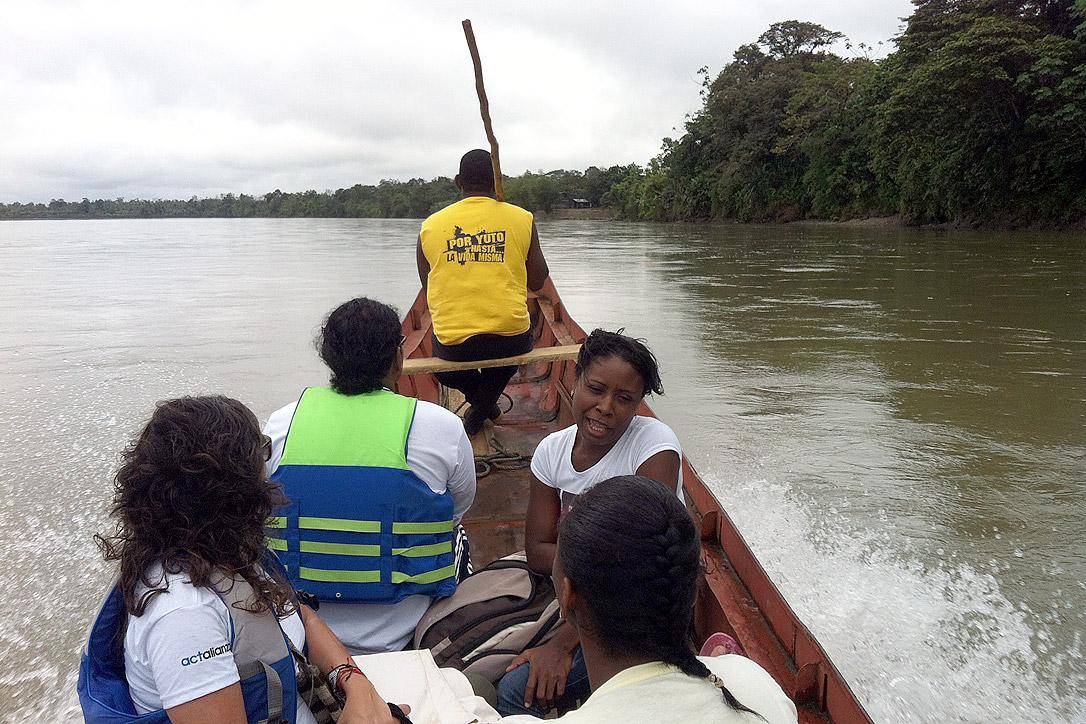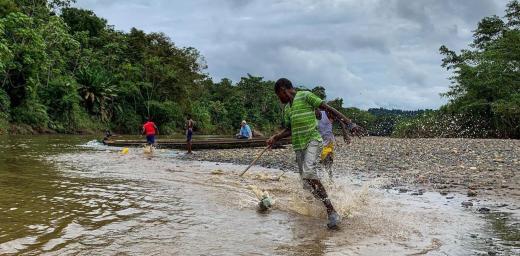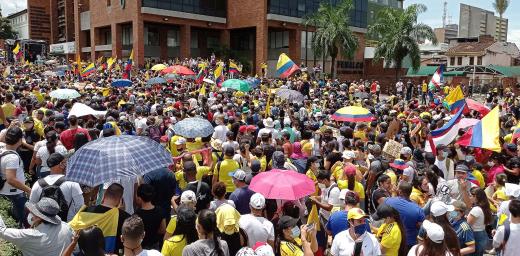Calling for a ceasefire in Colombia

LWF World Service team visiting remote rural communities who have been affected by the conflict in Colombia. Photo: LWF Colombia
Open letter to conflict parties during Havana peace talks
(LWI) – Together with leaders of many regional and international faith-based organizations, the General Secretary of The Lutheran World Federation (LWF) Rev. Dr Martin Junge has signed a letter calling for the bilateral ceasefire in Colombia.
The open letter issued for the Inter-Ecclesial Dialogue for Peace in Colombia (DIPAZ) is addressed to Juan Manuel Santos, President of Colombia, as well as Timoleón Jiménez, Commander of the FARC – EP, and to the two head negotiators of the two parties, who are engaged in peace talks in Havana, Cuba. It has also been signed by LWF General Secretary Rev. Dr Martin Junge, ACT Alliance General Secretary John Nduna, acting General Secretary of the World Council of Churches Georges Lemopoulos, as well as 31 representatives of Colombian church and faith organizations and 113 representatives of international church and faith organizations.
“We cannot help but express our sorrow, as Christians and as human beings, in response to the deaths that continue taking place in Colombia, which could have been avoided with an agreement for a bilateral ceasefire,” they state in the letter.
“We want to manifest our solidarity and accompaniment with the Colombian people who have cried out for many years for peace as the fruit of justice, in order that the lives of all might benefit, especially the poorest men and women in the country. They are the ones who have been the most impacted by the armed conflict.”
The conflict in Colombia has been going on for more than five decades. Half a million people have died, mostly civilians. More than 15,000 people are missing. The ongoing guerilla warfare has displaced millions of people. Recently, rebel sabotage activities have left hundreds of thousands without clean water and electricity. Peace talks which have been held in Havana for two and a half years have, according to the main negotiator, reached a critical low point. Last weekend, the FARC guerrilla announced a unilateral ceasefire to rescue the peace process.
“These are important steps towards an agreement that involves both parties,” the statement says. “We write with the hope that you will continue following the path of dialogue until you reach a peace accord, which, ‘though imperfect, is a promise of greater things to come.’”
LWF’s presence in Colombia includes its member church, the Evangelical Lutheran Church of Colombia (IELCO) and two recognized congregations. The IELCO is active in the peace agreement through its justice initiative that carries out peace work within the Diakonia Program. The letter has been also signed by Rev. Jairo Suarez, Diakonia Coordinator of the IELCO.
At IELCO’s invitation, the LWF Department for World Service opened a country office in Colombia in 2006. Together with ACT Alliance and local networks, they have been working to promote of human rights, long-term sustainable development and humanitarian action.
The LWF is committed to peace and reconciliation in the country by supporting civil society organizations in the regions of Arauca and Choco to work for peace in these territories. Through the ACT Forum Colombia, churches and ecumenical organizations are encouraged to ensure a negotiated political solution to the armed conflict, helping create space for dialogue and consultation.





